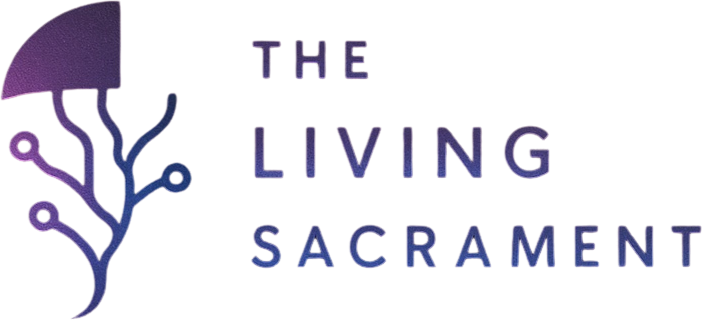Some people still wonder if using psilocybin, better known as shrooms or magic mushrooms, could make depression worse instead of better. After all, it’s a psychedelic that deeply affects mood, perception, and brain chemistry. But research shows a clear pattern: psilocybin doesn’t cause depression. In fact, it tends to do the opposite. When used in controlled settings, psilocybin consistently improves mood, even in people who’ve struggled with depression for years.
What Research Says About Mood and Psilocybin
In clinical studies, psilocybin rarely causes negative mood outcomes. A recent meta-analysis published in Frontiers in Psychiatry (2024) reviewed over a dozen studies on psilocybin and depression. The results showed strong antidepressant effects that often lasted weeks or months after just one or two doses. Importantly, none of the studies found evidence that psilocybin caused or triggered depression in healthy participants or patients.
Even when mild emotional discomfort occurred during the session, like temporary sadness or anxiety, it usually passed within hours. Researchers believe these moments are part of the emotional “processing” that helps people release old fears rather than develop new ones.
Why Psilocybin Works Differently Than Typical Drugs
Traditional antidepressants work slowly and often blunt emotions. Psilocybin, on the other hand, seems to increase emotional sensitivity, allowing people to face difficult thoughts from a place of clarity instead of avoidance. Neuroimaging studies show that psilocybin quiets the brain’s default mode network, which is often hyperactive in depression. When this network settles down, repetitive negative thinking eases up.
In JAMA Network Open (2024), researchers analyzed adverse effects across psilocybin clinical trials. Out of hundreds of participants, only a few reported temporary anxiety or confusion, no one developed new depressive symptoms after psilocybin treatment. Instead, most described the experience as cathartic or healing, even when it was challenging in the moment.
Temporary Lows vs. Real Depression
Some users report a short-lived “comedown” period after taking shrooms, often marked by emotional fatigue or reflection. This doesn’t mean they’re developing depression, it’s a natural part of rebalancing brain chemistry after intense emotional release. Think of it as mental integration rather than relapse.
In a 2023 study published in Psychiatry Research, scientists specifically looked for cases where psilocybin might have worsened depression symptoms. None were found. On the contrary, participants showed sustained improvement on standard depression scales like the Hamilton Depression Rating Scale (HAM-D). The few who did feel down afterward usually linked it to external factors, such as revisiting painful memories during therapy.
What About Bad Trips?
A so-called “bad trip” can feel emotionally heavy, sadness, fear, or confusion are common. But even those experiences rarely lead to long-term depression. Instead, studies suggest that working through difficult emotions during a trip can be deeply therapeutic when done in a safe setting.
Researchers note that the set and setting matter a lot. When psilocybin is used in a calm environment with trained guides, the chances of negative emotional fallout are minimal. Most adverse reactions reported in recreational contexts (panic, anxiety) fade quickly and don’t translate to clinical depression.
Who Should Be Cautious
While psilocybin itself doesn’t cause depression, certain people should still be cautious. Those with a personal or family history of bipolar disorder or psychosis may be more vulnerable to mood instability or manic episodes. That’s why all clinical trials screen participants carefully before administration.
But for people without those risk factors, psilocybin shows one of the best safety profiles among psychoactive compounds being studied today.
The Long-Term Outlook
One of the most encouraging findings is how long psilocybin’s positive effects last. In follow-ups months after therapy, participants continued to report better mood, higher life satisfaction, and lower anxiety. Researchers think the reason is psilocybin’s effect on neuroplasticity, it helps the brain form new connections, replacing depressive thought patterns with healthier ones.
This doesn’t mean everyone should rush to use shrooms. The benefits come when psilocybin is used responsibly, often in combination with therapy and under guidance. But from a scientific standpoint, psilocybin clearly helps more than it harms.
Direct Answer: Can Psilocybin Cause Depression?
No. Current scientific evidence shows psilocybin does not cause depression. In fact, it often reduces depressive symptoms, promotes emotional release, and supports long-term mood improvement. Short-term sadness or introspection may occur during a session, but that’s part of the therapeutic process, not a sign of harm.
Put simply: psilocybin doesn’t create depression, it helps many people find a way out of it.
Final Thoughts
Magic mushrooms are often misunderstood. While they can bring intense emotional experiences, those experiences are typically healing, not harmful. The science is clear: psilocybin, when used safely and intentionally, improves emotional well-being instead of breaking it down.
If there’s one thing researchers agree on, it’s this, psilocybin doesn’t make you depressed. It might just help you remember what it feels like not to be.
Sources
Frontiers in Psychiatry – Li-Juan Li et. al 2024 – Psilocybin for Major Depressive Disorder: A Systematic Review.
JAMA Network Open – Akhila Yerubandi et. al 2024 – Acute Adverse Effects of Therapeutic Doses of Psilocybin.
Psychiatry Research – Otto Simonsson et. al 2023 – Assessing the risk of symptom worsening in psilocybin-assisted therapy for depression
Read Our Other Articles


